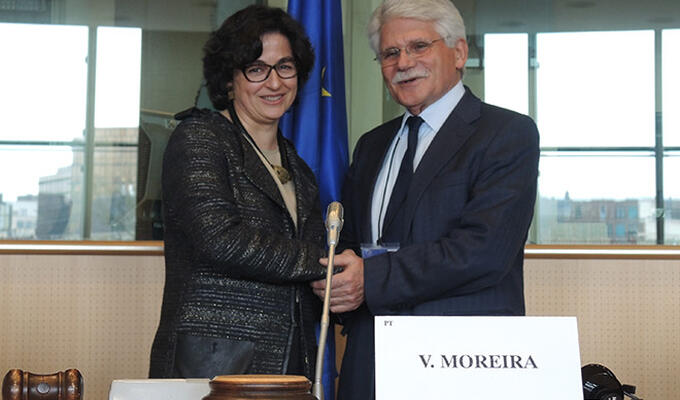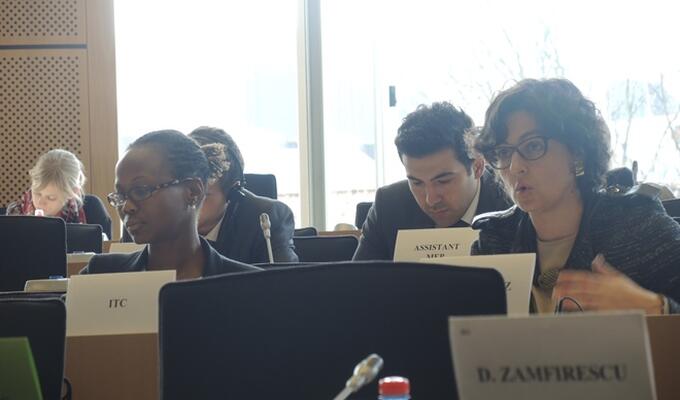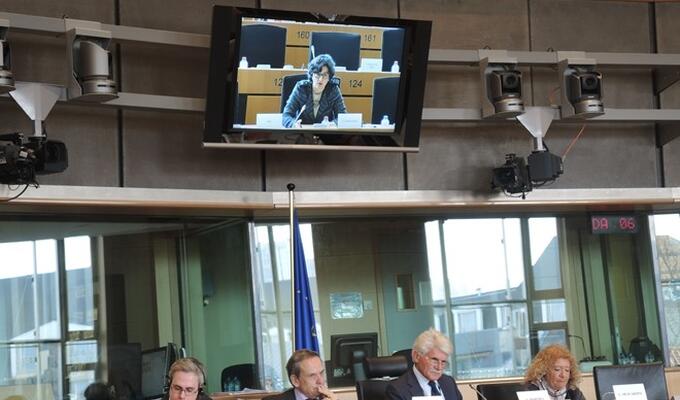


SMEs drive world trade and economic growth
Small and medium-sized enterprises (SMEs) are ’the world’s most concentrated, booming and innovative engine for world trade and growth’, according to the Executive Director of the International Trade Centre (ITC), Arancha González. With 95 per cent of global enterprises comprising SMEs, they serve as key drivers of innovation, social integration, employment -- representing 60 per cent of private sector jobs – which fuel economic growth, she said.
Addressing the European Parliament Committee on International Trade in Brussels on 19 March 2014, the Executive Director said: ‘Ensuring that we create the right environment to allow SMEs to be engaged in trade is an important part of a more resilient global economy. To fully unlock their potential within the multilateral trading system, there is still some work to be done to help address market failures which prevent SMEs from becoming the engines of growth that the international economy needs.’
Ms González stressed the need to unlock the potential of SMEs by focusing on non-tariff barriers which are key obstacles to trade. She said the way forward in the global trade agenda is to move from notional to real market access.
‘The World Trade Organization deal on trade facilitation is good news: the agreement tackles non-tariff obstacles to trade – those related to border procedures – and for the first time, it innovates in its approach towards developing and least developed countries. The old “opting out” approach is replaced by an intelligent blend of commitments accompanied by support for their implementation,’ said Ms González.
She called for a broader set of actions to reduce the range of burdens and costs to international trade to include access to finance, entrepreneurship and skills development, innovation and technology, compliance with private standards and other non-tariff measures. Ms González underscored the importance of ensuring that global trade agreements, including those concluded by the European Union (EU) with developing countries, particularly the least developed countries, be accompanied by a strong set of measures to improve their SME competitiveness. She advocated the importance of development assistance being targeted at strengthening the private sector in developing countries.
‘It’s about strengthening trade support institutions, fostering trade competitiveness, building spaces for private-public dialogues, fostering vocational training and capacity-building, and creating market linkages through business-to-business platforms. It is about recognising that the private sector and in particular, SMEs, have a key role to play in development and elimination of poverty provided they are properly tooled. You are well placed to ensure the EU leads the way,’ said Ms González.
The Executive Director said closer attention should be paid to helping women-owned SMEs to internationalize. Despite their growing economic force with 8-10 million women-owned SMEs in developing countries representing close to 40 per cent of total SMEs, women entrepreneurs face specific challenges.
‘Women’s economic empowerment must be an integral part of our agenda not only because it generates employment but because women reinvest up to 90 per cent of their earnings in their families and communities, and are a powerful tool linking trade to development. Helping foster women entrepreneurship through capacity-building and the setting up of SMEs by women and linking women-owned SMEs to regional and global markets needs to remain central to discussions on SME internationalization. This is the core of ITC’s Women and Trade programme.’
Ms González also emphasized the importance of investment, including through non-bank supply chain financing, angel investors and venture capitalists, as critical factors for SME development. She pointed out that substantial barriers need to be overcome to facilitate impact investment which could reach $400 billion to $1 trillion by 2020.
‘The EU is in a good position to engage mainstream investors from European industries, which is a very dynamic and interesting supply chain to SMEs in fast growing developing economies, in particular, in Africa. Financing EU SME engagement in developing countries can yield promising innovation, niche products and new jobs for SMEs in Europe. When SMEs do business in developing countries, this gives impetus for increasing local demand for services which developing country SMEs in fast growing markets can provide,’ said Ms González.



